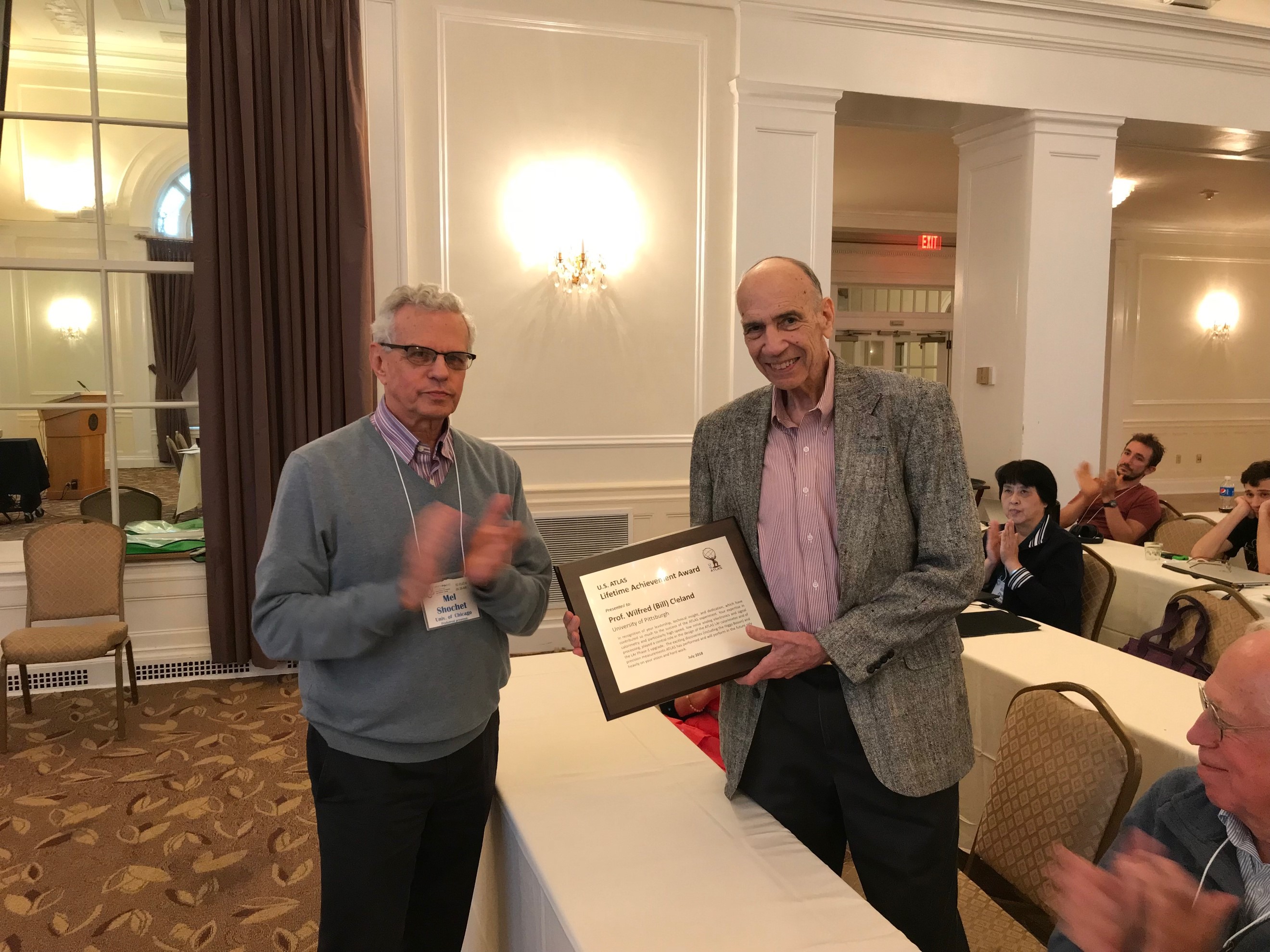The 2018 Edition of the USATLAS Summer Workshop drew over 100 participants from American universities and national laboratories to the University of Pittsburgh’s campus during the week of July 30. The USATLAS collaboration is a network of particle physicists, the U.S. contingent of a 3,000 member international collaboration that built and now operates one of the most complex scientific instruments every constructed: the ATLAS experiment (www.atlas.cern) at the CERN’s Large Hadron Collider (LHC), in Geneva Switzerland. The experiment discovered the Higgs Boson in 2012, and currently investigates its unique properties.

Each year during the summer workshop, USATLAS bestows a lifetime achievement award, its highest honor, to one of its members. This year’s award was given to Emeritus Professor Wilfred E. (“Bill”) Cleland of the University of Pittsburgh.
Bill Cleland began work on the ATLAS experiment in 1994 and is one of the chief architects of a critical detector called the calorimeter. The calorimeter captures particles, measures their energy, and distinguishes high energy electrons and photons from other types of particles. Higgs bosons decaying to pairs of photons or final states consisting of electrons and/or muons are therefore detected in this system. The ATLAS calorimeter was carefully designed over many years and optimized for the detection of the Higgs boson, as well as other important signatures of processes involving elementary particles at high energies.
Prof. Cleland’s area of expertise is in high-speed, low-noise analog electronics. He designed and built at Pittsburgh a fast analog “trigger” path required to activate the full readout of the ATLAS detector electronics, a multi-million channel system that functions as a high speed digital camera, taking snapshots every 25 nanoseconds. These electronics are installed at CERN in Geneva Switzerland and maintained by University of Pittsburgh personnel.
Professor Cleland received his BS degree from Texas A&M University in 1959, and his Ph.D from Yale University in 1964. He taught at the University of Massachussets from 1967, and moved to the University of Pittsburgh in 1970. He worked on experiments at Brookhaven National Laboratory (Upton, NY) and at CERN. His major contribution to physics is the ATLAS experiment, through 25 years of design, construction, and operation. He founded the Pitt ATLAS group, currently consisting of himself in addition to Professors Joe Boudreau, Jim Mueller, and Tae Min Hong, plus postdoctoral research assistants and graduate students. Professor Cleland retired from teaching in 1999 and continues his efforts on calorimeter electronics to this day. In 2013 he was recruited by CERN to chair a working group dedicated to upgrading the calorimeter electronics to cope with even higher rates of proton-proton collisions.
The University of Pittsburgh’s ATLAS group maintains a permanent presence at CERN in Geneva Switzerland and welcomes visitors to the laboratory. Members of the Pitt community who wish to receive a guided tour of the laboratory while visiting Geneva are invited to contact the physics department.